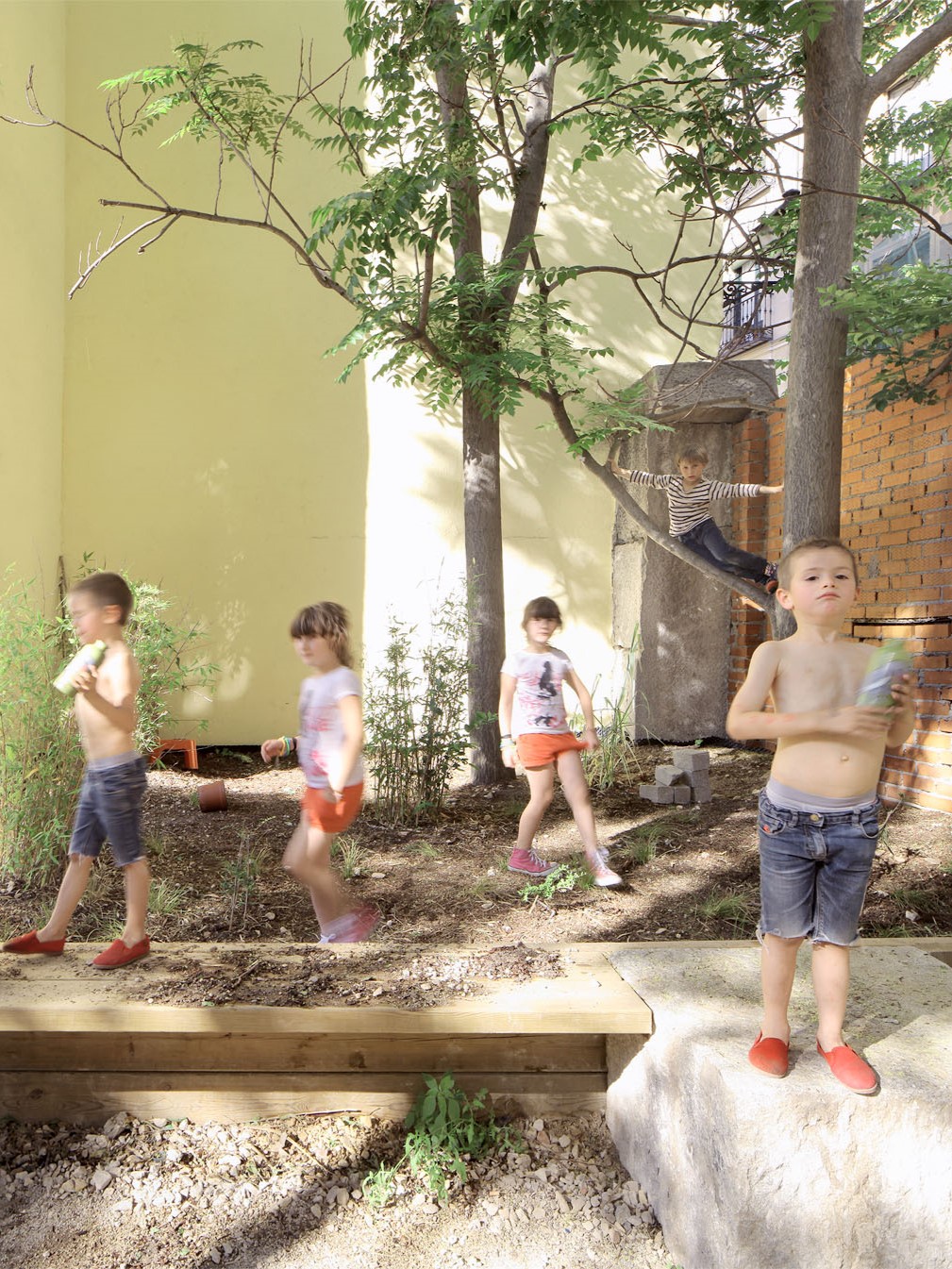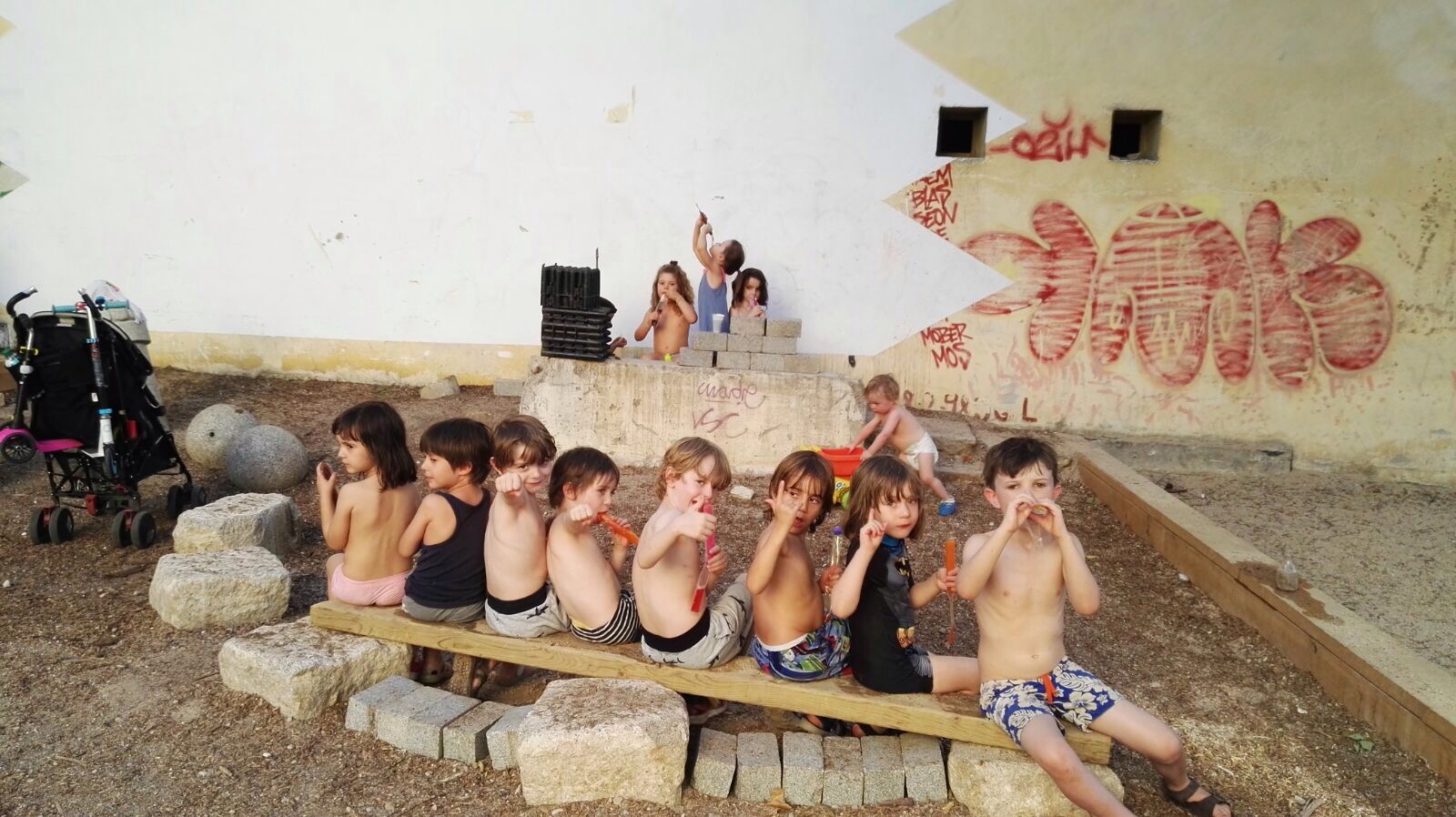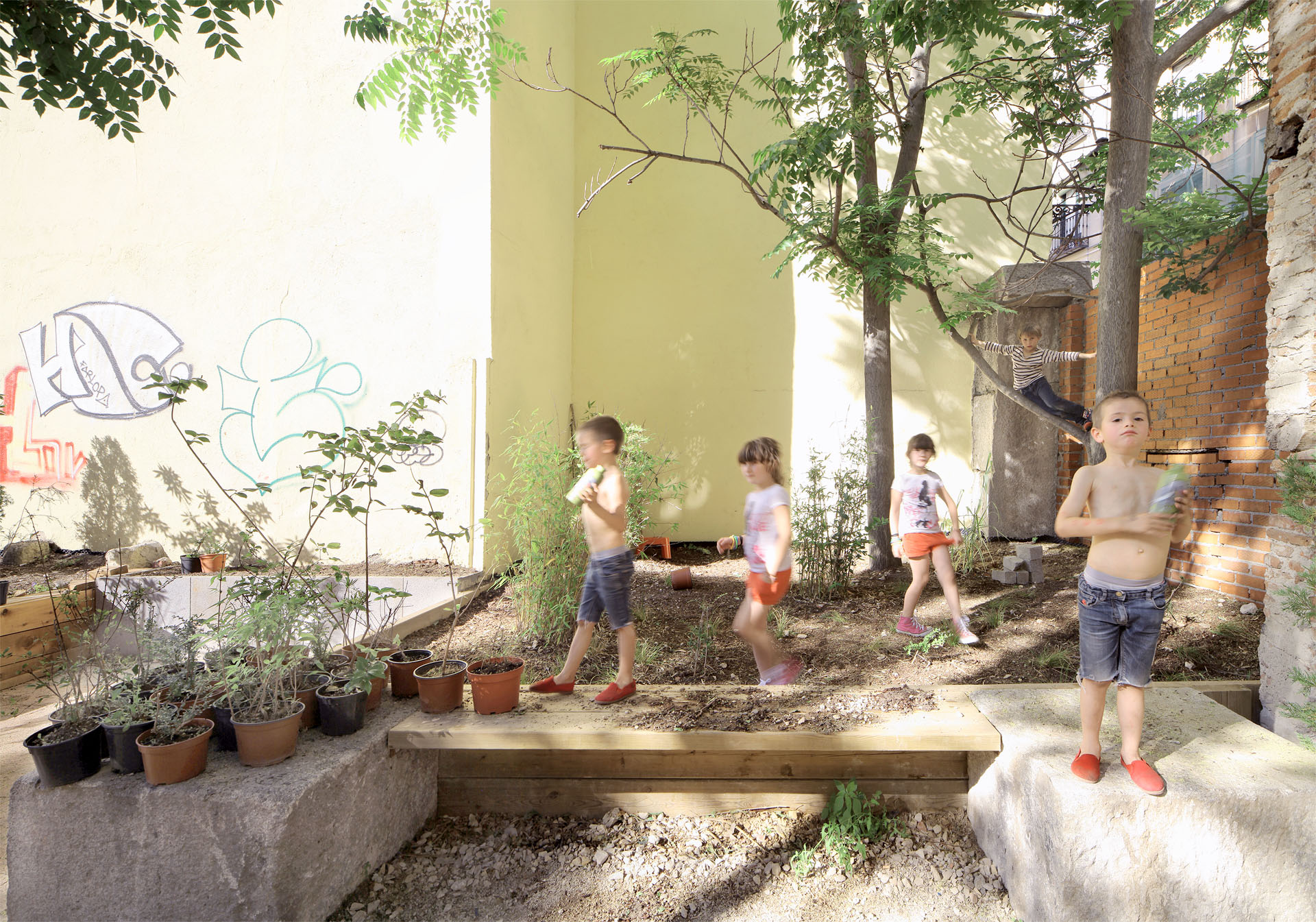
A playground created by and for the neighbourhood
The park at calle Almendro nº3 opens to the children of the neighbourhood on an autumn day in 2015. This is a proposal promoted by the Junta de Distrito Centro and the Urban Landscape and Heritage Area of the Madrid City Council with the intention of recovering, together with the neighbourhood, a space for children and making the historical heritage of the city of Madrid more visible.
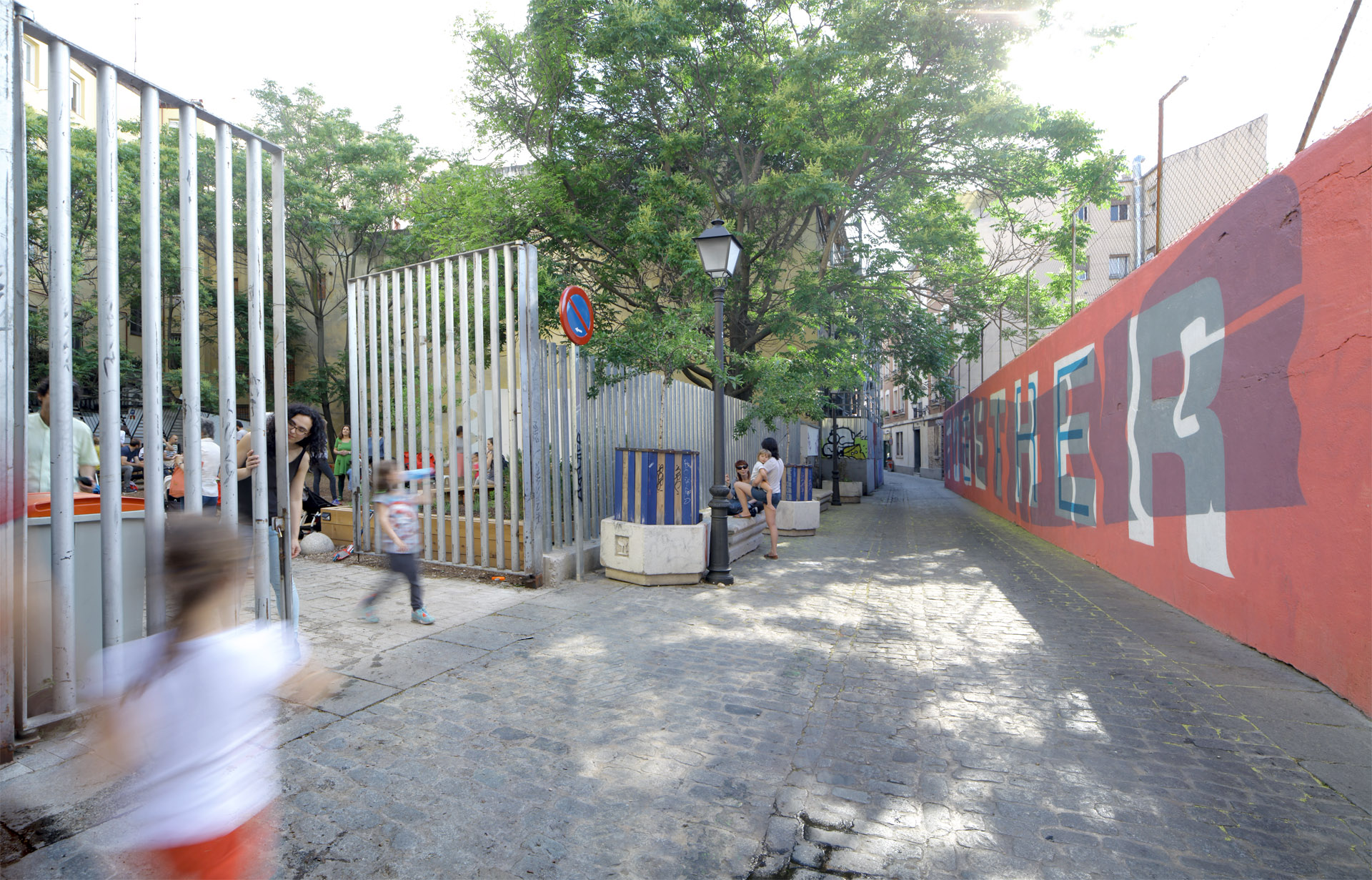
Where are children in cities? Where do they play? Taking these questions as a premise, children from the surrounding schools are invited to go to the empty site in Calle Almendro and dream about what they want this place to be. The Pupils’ Family Associations (AFAs) of the public schools La Paloma, Vázquez de Mella and San Ildefonso, the Cavas La Latina Neighbourhood Association, businesses and neighbours from the neighbourhood get together with the children to think about how to transform the site. One rule governs the entrance: ‘To enter you have to play’.
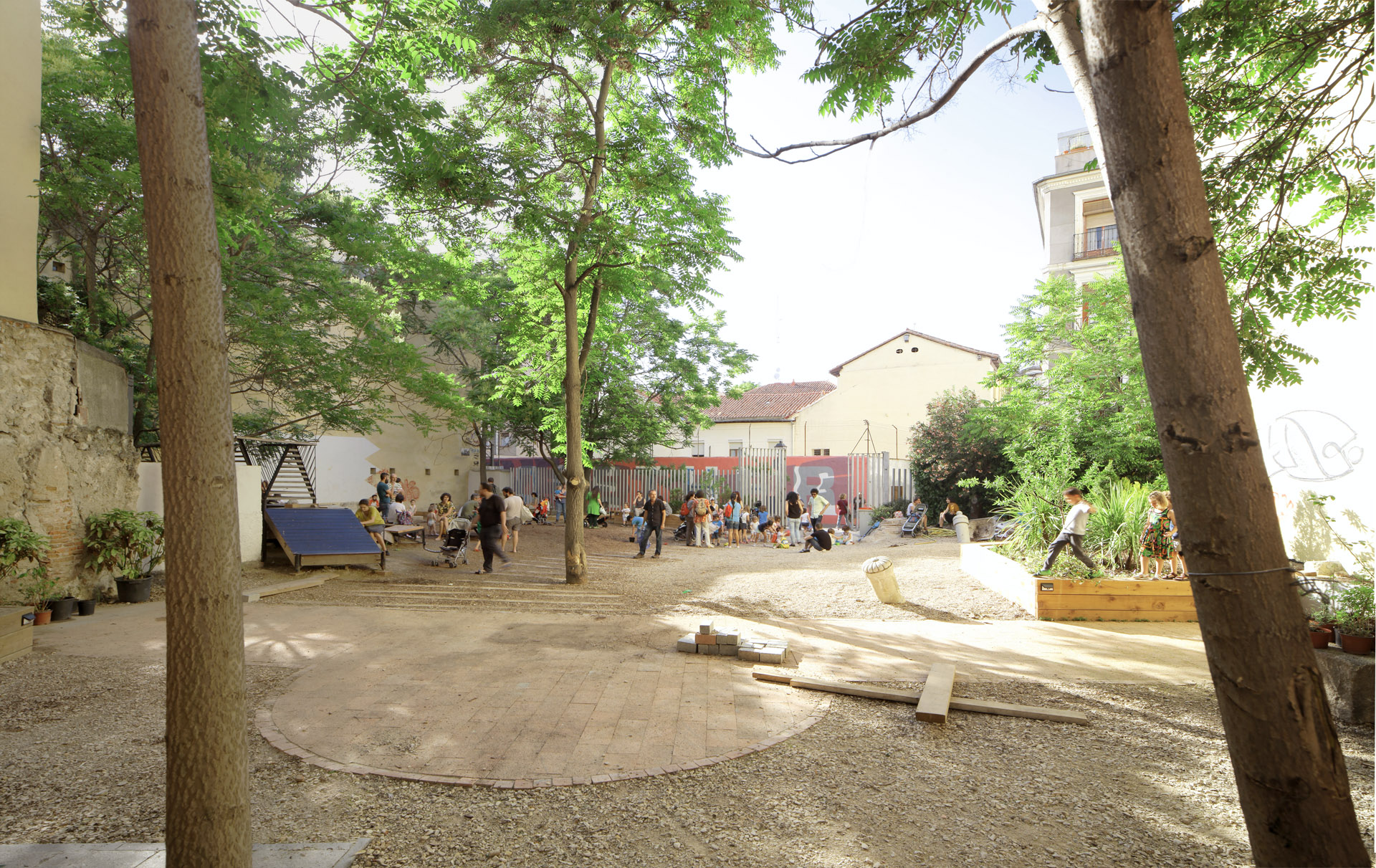
The children do not want swings, slides or guided games. Non-intervention is then respected, providing only accompaniment for their decisions. ‘To which they answer: “mountains, tree houses, friends forever, a human duck, a robot wardrobe, an elephant…”. They never, at any time, have normative spaces as a model.
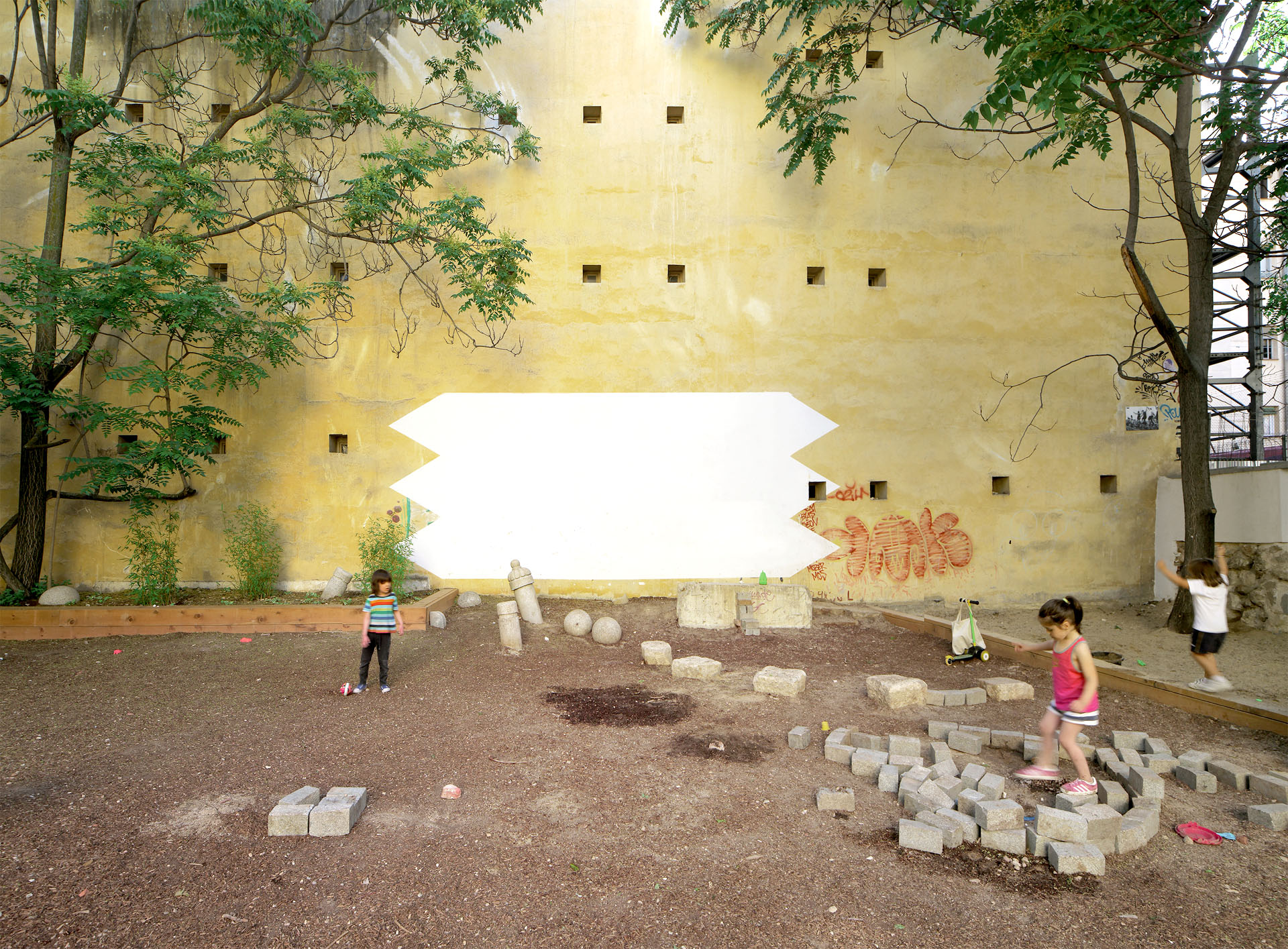
As first actions, the street, previously permanently dirty and full of rubbish, is cleaned up, replacing the parking areas and rubbish bins with stone benches and planters with almond trees. In addition, a collaborative design exercise was carried out to paint the wall surrounding the site. For this purpose, a first truckload of topsoil was brought in, placed in the shape of a mountain as a children’s playground.
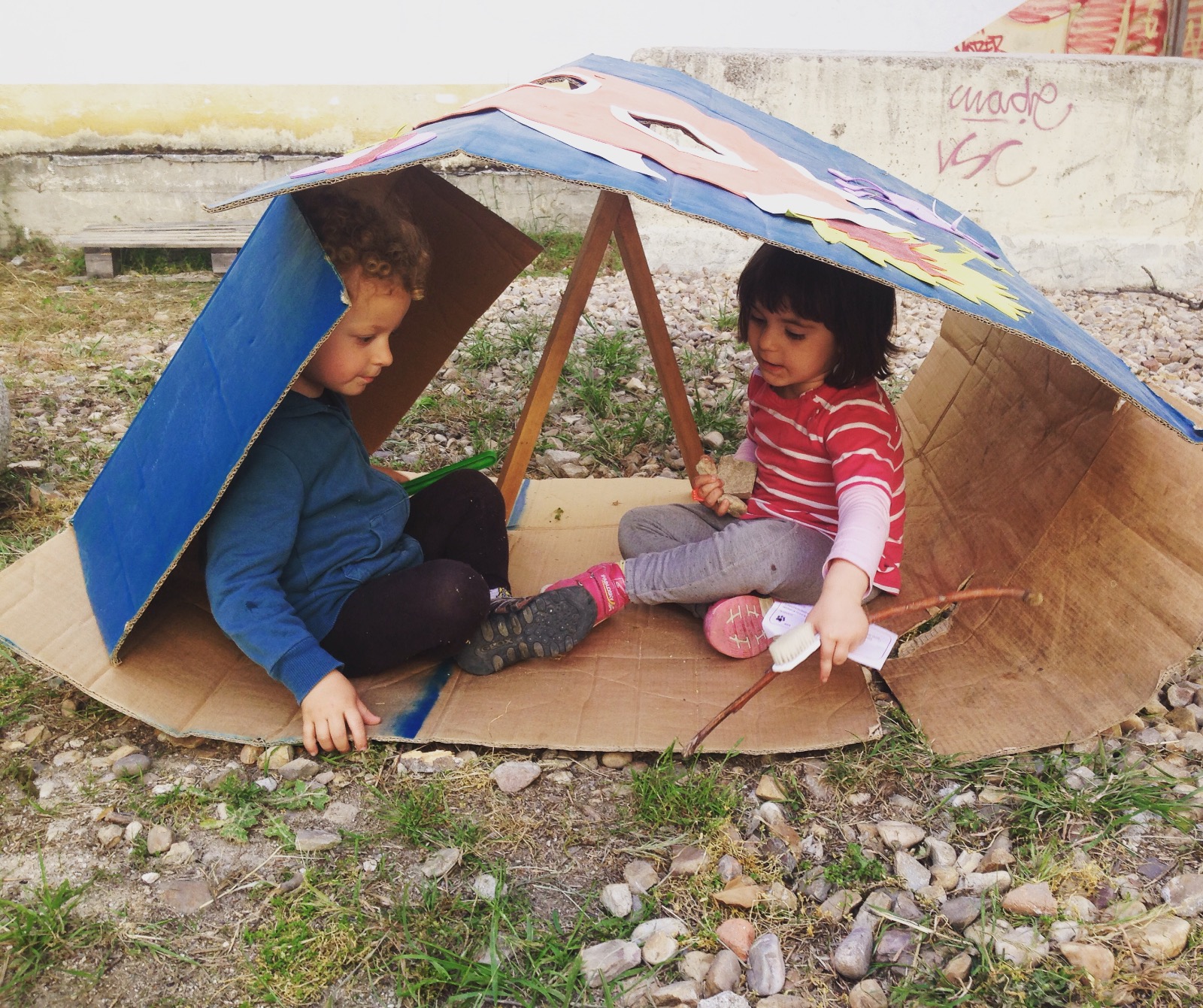
Inside the site, the soil is cleaned, removing glass, debris and weeds. In collaboration with Basurama and Viuda de Ramírez, an elephant bench is designed and built, made of wood salvaged from old benches in Madrid, which serves as a support for children’s games and as a rest for older children. Stone elements, chosen by the neighbours, are also installed to give a more attractive image and as a support for children’s games. In addition, a minimum number of supporting furniture such as benches, tables, etc. are introduced, so that people can start to use the space.
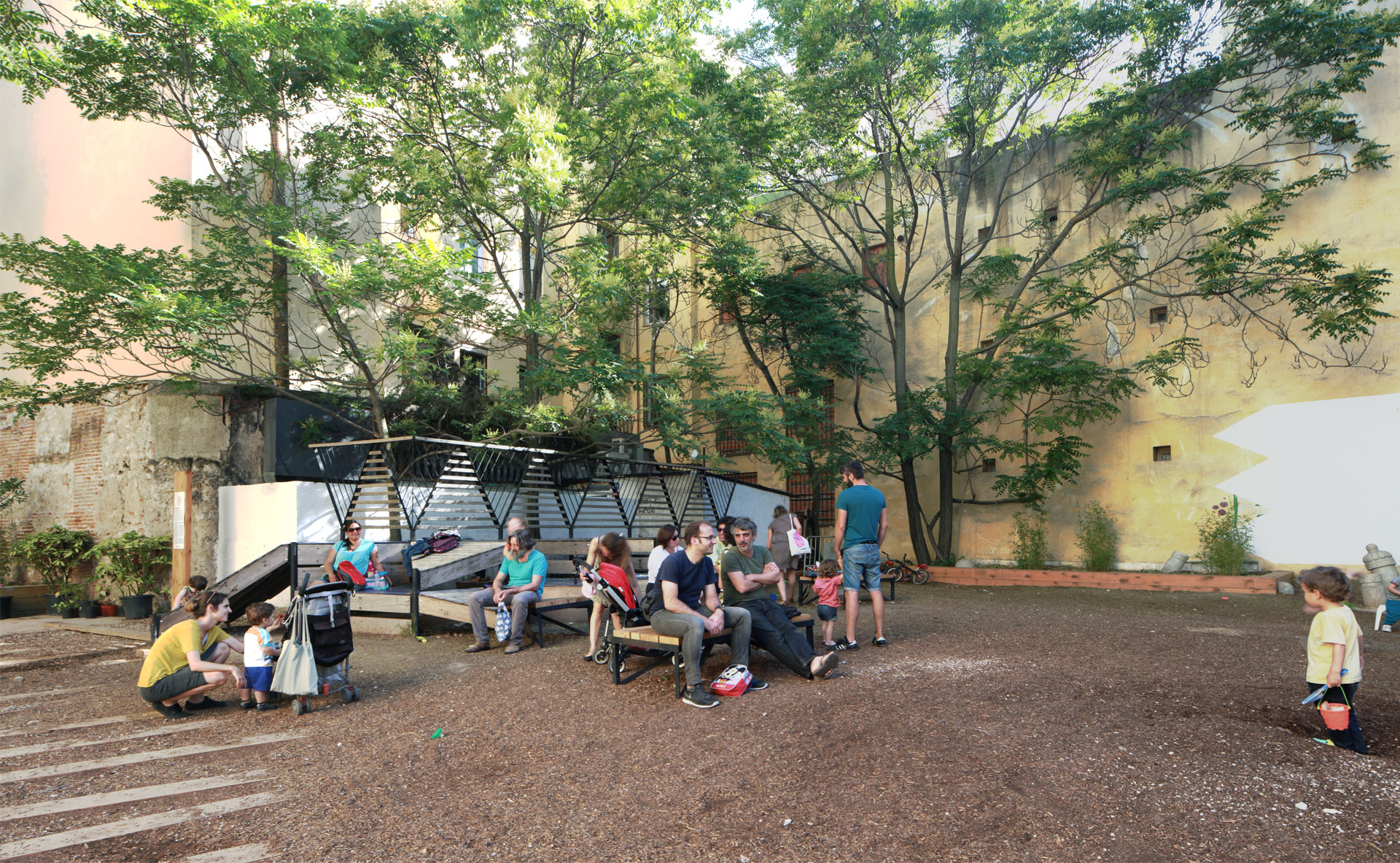
Thus, Almendro 3 lays the foundations for the self-managed construction of a sustainable and well-cared-for playground, based on a participatory design that takes into account the voice and wishes of its main users: the children.

